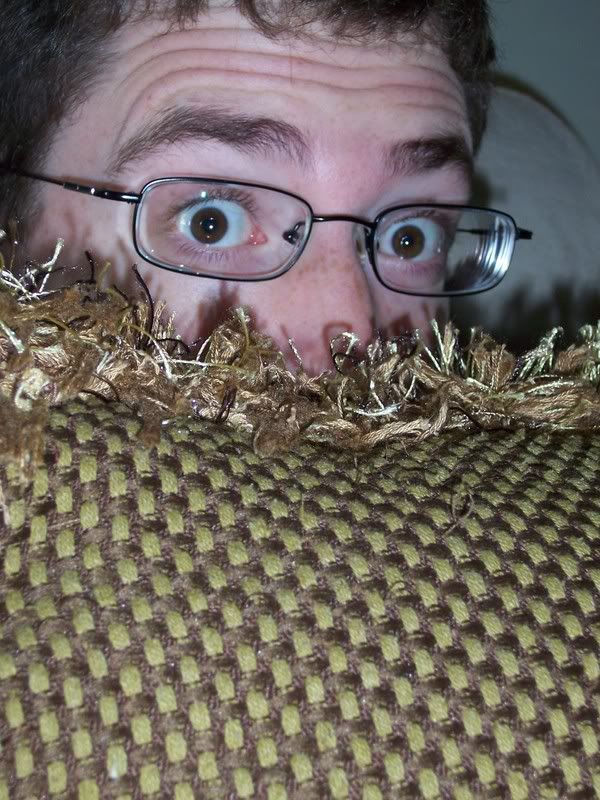If it were only McEwan’s characterizations that grabbed me, Atonement might just be an OK novel, but I am consistently surprised at how many nuggets of truth the author sticks in. And they don’t seem preachy because he has made them so much a part of his characters.
This brings me to a part from the beginning of the novel (around page 35) that I was thinking about today. Briony Tallis is a young girl of thirteen … a very precocious, thoughtful, introspective, perfectionistic young girl who has just written a play for her family members to perform. After her performers cannot live up to her creative standards, Briony sits down and starts to think.
The silence hissed in her ears and her vision was faintly distorted – her hands in her lap appeared unusually large and at the same time remote, as though viewed across an immense distance. She raised one hand and flexed its fingers and wondered, as she had sometimes before, how this thing, this machine for gripping, this fleshy spider on the end of her arm, came to be hers, entirely at her command. Or did it have some little life of its own? She bent her finger and straightened it. The mystery was in the instant before it moved, the dividing moment between not moving and moving when her intention took effect. It was like a wave breaking. If she could only find herself at the crest, she thought, she might find the secret of herself, that part of her that was really in charge. She brought her forefinger closer to her face and stared at it, urging it to move. It remained still because she was pretending, she was not entirely serious, and because willing it to move, or being about to move it, was not the same as actually moving it. And when she did crook it finally, the action seemed to start in the finger itself, not in some part of her mind. When did it know to move, when did she know to move it? There was no catching herself out. It was either-or. There was no stitching, no seam, and yet she knew that behind the smooth continuous fabric was the real self – was it her soul? – which took the decision to cease pretending, and gave the final command.I love the richness of this paragraph and how it so beautifully describes the intricacy of something extremely simple. I have these thoughts many times as I’m sitting or walking. I’ll start thinking about the vastness and glory of creation and be dumb-founded for a few minutes. The world starts moving slower. I notice everything. There is beauty everywhere because everything has an intricate design. Then I find myself having thoughts like Briony does in the next paragraph:
Was everyone else really as alive as she was? For example, did her sister really matter to herself, was she as valuable to herself as Briony was? Was being Cecilia just as vivid an affair as being Briony? Did her sister also have a real self-concealed behind a breaking wave, and did she ever spend time thinking about it, with a finger held up to her face? Did everyone [else]? If the answer was yes, then the world, the social world, was unbearably complicated, with two billion voices, and everyone’s thoughts striving in equal importance and everyone’s claim on life as intense, and everyone thinking they were unique, when no one was. One could drown in irrelevance. But if the answer was no, then Briony was surrounded by machines, intelligent and pleasant enough on the outside, but lacking the bright and private inside feeling that she had. This was sinister and lonely, as well as unlikely. For, though it offended her sense of order, she knew it was overwhelmingly probable that everyone else had thoughts like hers. She knew this, but only in a rather arid way; she didn’t really feel it.I guess I shouldn’t be surprised at some people not thinking about life as much as I do, but it makes me wonder how some people who are not consistently introspective are able to live a full life. It seems to me like they would “drown in irrelevance.”
Just my thoughts. Take from them what you will.






















1 comment:
"An unexamined life is not worth living." - Socrates
Post a Comment